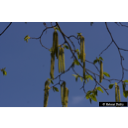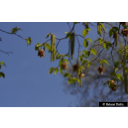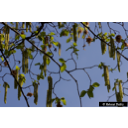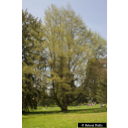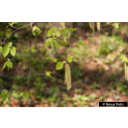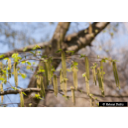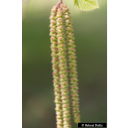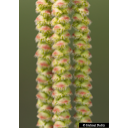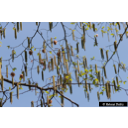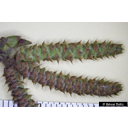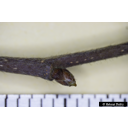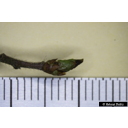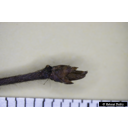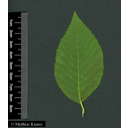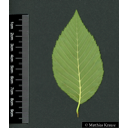Useful information about the taxon (species, subspecies, variety...)
Ostrya carpinifolia Scop. 1772
Betulaceae
(APG IV)European hop-hornbeam
Akzessionnummer: KLB-345-20490
Pflanzjahr: 0
Taxon concept: The Plant List (2014), version 1.1
Distribution: Europe: France and Benelux, Apennine Peninsula, Switzerland, Austria, Hungary, the Balkans; Turkey, Syria, Lebanon, Caucasus
Ostrya carpinifolia Scop. - Accepted: Ostrya carpinifolia Scop. bei Zander 2008; Familie: Betulaceae (Zander 2008)Ostrya carpinifolia Scop. - Accepted: Ostrya carpinifolia Scop. bei The Plant List (2010); Familie: Betulaceae (APG III)Ostrya carpinifolia Scop. - Accepted: Ostrya carpinifolia Scop. bei not specified; Familie: Betulaceae (APG IV)Ostrya carpinifolia Scop. - Accepted: Ostrya carpinifolia Scop. bei The Plant List (2010); Familie: Betulaceae (APG IV)
- Flowers
- monoecious; male and female flowers in pendulous catkins
- Flower ecology
- wind-pollinated (anemophilous)
- Life form
- tree
- Foliage persistence
- deciduous
- Fruits
- nut fruit
- Fruit ecology
- wind-dispersed (anemochorous)
- Natural occurrence (habitat)
- deciduous forests and scrub, shrubby, sunny hillsides, crags, open coniferous woodland on dry rocky slopes, south-facing downy oak woodlands in Mediterranean regions, open pine forests, dry stony hillsides (on limestone)
- Vegetation typ and synecology (plant community)
- temperate, mixed mesophytic deciduous forests to warm-temperate, deciduous/evergreen forests, woodlands and scrub
- Usage
- hard and tough wood is used for carpentry and for charcoal
Haider, M. et al. (2005): Wildbienenkataster. See: https://www.wildbienen-kataster.de; Ministerium für Ernährung, Landwirtschaft, Umwelt und Forsten, Baden-Württemberg (Hrsg.) (1985): Pflanzenkatalog zur Verbesserung der Bienenweide und des Artenreichtums (Kurztitel: Bienenweidekatalog); Missouri Botanical Garden, www.tropicos.org; Westrich, P. et al. (2018): Die Wildbienen Deutschlands.. Ulmer Verlag ISBN 978-8186-0123-2.;
Diese Webseite verwendet Google Maps, um Karten und Standorte von Pflanzen in den Hohenheimer Gärten anzuzeigen. Dadurch werden unter Umständen Daten an Google weitergeleitet, was mit einer Verarbeitung Ihrer personenbezogenen Daten verbunden sein kann. Die Datenschutzerklärung von Google finden Sie hier: Datenschutzerklärung von Google

